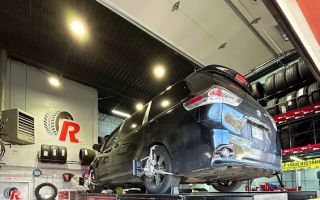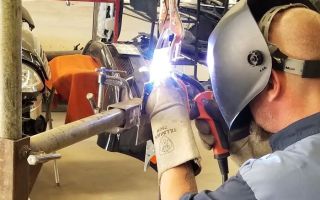Essential Tools for Fixing a Flat Tire: A Guide for Car Owners
- 1. Introduction to Flat Tire Repair
- 2. Why Having the Right Tools Matters
- 3. Basic Tools for Fixing a Flat Tire
- 4. Advanced Tools and Repair Kits
- 5. Step-by-Step Guide to Fixing a Flat Tire
- 6. Common Challenges and Solutions
- 7. When to Call a Professional
1. Introduction to Flat Tire Repair
Flat tires are one of the most common car troubles that drivers face. Whether you are driving through the city, on a road trip, or even parked at home, the risk of a flat tire is always present. It can happen unexpectedly, leaving you stranded. However, with the right tools and knowledge, fixing a flat tire can be a manageable task. In this guide, we'll explore the essential tools needed for fixing a flat tire and give you step-by-step instructions on how to perform the repair yourself, saving you both time and money. Having these tools readily available can help you take control of the situation and avoid unnecessary stress.
2. Why Having the Right Tools Matters
When it comes to repairing a flat tire, the tools you use can make all the difference between a successful fix and further frustration. Many people think they can rely on basic tools or make do with what they have at hand, but without the proper equipment, fixing a flat tire can become far more challenging than it needs to be. Using the right tools not only ensures a quicker repair but also minimizes the risk of damaging your vehicle or harming yourself during the process. Understanding which tools are crucial and how to use them is key to efficiently addressing this common car issue.
3. Basic Tools for Fixing a Flat Tire
The following are essential tools that every car owner should have in their vehicle to deal with a flat tire. These tools form the foundation of your tire repair kit and should always be within easy reach:
- Spare Tire: Always ensure your vehicle is equipped with a spare tire that is properly inflated and ready for use.
- Jack: A high-quality jack is necessary to lift your vehicle safely off the ground to change the tire.
- Lug Wrench: This tool is used to loosen and tighten the lug nuts on the tire. It should fit the size of the lug nuts on your car.
- Tire Pressure Gauge: A tire pressure gauge is important for ensuring that both your spare and replacement tires are properly inflated.
- Gloves: Work gloves can protect your hands from dirt, grease, and injury while working on your vehicle.
- Flashlight: A reliable flashlight is essential for working in low light conditions, particularly at night.
4. Advanced Tools and Repair Kits
While basic tools can help you perform a straightforward tire change, advanced tools and repair kits can be beneficial for more complex tire issues, such as punctures or slow leaks. Some of these include:
- Tire Repair Kit: These kits usually include rubber plugs, adhesive, and tools for sealing punctures temporarily.
- Portable Air Compressor: This tool allows you to reinflate your tire after a repair or if your spare tire is low on air.
- Impact Wrench: An impact wrench is a high-torque tool that can make removing stubborn lug nuts faster and easier, especially for larger vehicles.
- Tire Plug Kit: For more permanent repairs, a tire plug kit provides an effective way to fix a puncture without replacing the tire.
5. Step-by-Step Guide to Fixing a Flat Tire
Now that you have the right tools, let’s walk through the process of fixing a flat tire step-by-step. This will ensure you know exactly what to do if you find yourself in need of a repair:
- Step 1: Secure the vehicle by applying the parking brake and placing wheel chocks behind the opposite wheels.
- Step 2: Use the jack to lift the vehicle off the ground. Make sure the jack is placed on a solid surface and the lift points are aligned with the vehicle's manual.
- Step 3: Remove the lug nuts using the lug wrench and take the flat tire off.
- Step 4: Mount the spare tire, ensuring it is aligned properly. Tighten the lug nuts in a star pattern to ensure an even fit.
- Step 5: Lower the vehicle carefully and double-check the lug nuts for tightness.
- Step 6: Use a tire pressure gauge to check that the spare tire is correctly inflated.
6. Common Challenges and Solutions
Despite having the right tools, you may face some challenges when fixing a flat tire. Here are some common issues and their solutions:
- Stubborn Lug Nuts: If your lug nuts are stuck, try using a breaker bar or an impact wrench for additional leverage.
- Damaged Spare Tire: If your spare tire is damaged or under-inflated, consider investing in a high-quality, easy-to-replace spare or portable air compressor.
- Insufficient Lighting: Always keep a flashlight handy in case you need to change a tire at night or in poorly lit conditions.
7. When to Call a Professional
While fixing a flat tire can be a manageable task, some situations may require professional assistance. If you’re unsure about the repair, dealing with a more complex issue like a damaged rim, or facing inclement weather, it’s best to contact a towing or roadside assistance service. Professional help can ensure the job is done safely and efficiently.
If you encounter any trouble while attempting a flat tire repair, don't hesitate to reach out to experts. For reliable towing services or help with a tire change, Rescue & Towing is here to assist you.
























